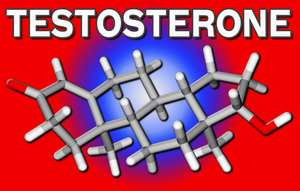Introduction to Urological Health
Urological health is a cornerstone of overall well-being for men, yet it remains a topic shrouded in silence and stigma. In the United States, where men's health campaigns are increasingly gaining traction, the focus on urology is paramount. This article delves into the importance of integrating urological health into these campaigns, aiming to educate and empower American males to take proactive steps towards better health.
The Prevalence of Urological Issues
Urological conditions such as prostate cancer, benign prostatic hyperplasia (BPH), and erectile dysfunction are prevalent among American men. According to the American Urological Association, prostate cancer is the second most common cancer among men in the U.S., with approximately one in nine men being diagnosed in their lifetime. BPH, a non-cancerous enlargement of the prostate, affects more than 50% of men over the age of 60. These statistics underscore the necessity of addressing urological health in national health initiatives.
The Impact of Urological Health on Quality of Life
The repercussions of neglecting urological health extend beyond physical symptoms. Conditions like erectile dysfunction can lead to psychological distress, affecting self-esteem and intimate relationships. Similarly, the symptoms of BPH, such as frequent urination and difficulty starting or maintaining a urine stream, can disrupt daily activities and sleep patterns, leading to a diminished quality of life. By highlighting these impacts, men's health campaigns can motivate men to seek timely medical intervention.
Barriers to Urological Care
Despite the high prevalence of urological issues, many men face barriers to seeking care. Societal stigma, fear of diagnosis, and a lack of awareness about the importance of regular check-ups contribute to delayed treatment. Men's health campaigns must address these barriers head-on, promoting open discussions about urological health and normalizing the process of seeking help. By doing so, campaigns can encourage men to overcome their hesitations and prioritize their health.
The Role of Education and Awareness
Education is a powerful tool in the fight against urological diseases. Men's health campaigns should focus on disseminating accurate information about the signs, symptoms, and risk factors associated with common urological conditions. For instance, educating men about the importance of prostate-specific antigen (PSA) testing can lead to earlier detection of prostate cancer, significantly improving treatment outcomes. Additionally, awareness campaigns can dispel myths and misconceptions, fostering a more informed public.
Incorporating Urological Health into Broader Health Initiatives
To maximize impact, urological health should be integrated into broader men's health initiatives. This holistic approach can address the interconnectedness of various health issues, such as cardiovascular health, diabetes, and mental well-being, all of which can influence urological outcomes. By presenting urological health as an integral part of overall health, campaigns can encourage men to adopt a comprehensive approach to their well-being.
The Importance of Regular Screenings
Regular screenings are crucial for the early detection and management of urological conditions. Men's health campaigns should emphasize the importance of routine check-ups, particularly for those over the age of 50 or with a family history of urological diseases. By promoting a culture of preventive care, these campaigns can help reduce the burden of advanced-stage diagnoses and improve survival rates.
Conclusion: A Call to Action
The integration of urological health into men's health campaigns in the U.S. is not just beneficial—it is essential. By raising awareness, breaking down barriers, and promoting regular screenings, these campaigns can significantly enhance the health outcomes of American males. It is time for men to take charge of their urological health, and for health initiatives to support them every step of the way.
Contact Us Today For A Free Consultation

- Urological Health Guide: Proactive Care and Common Conditions for American Men [Last Updated On: March 9th, 2025] [Originally Added On: March 9th, 2025]
- Urological Health Guide for American Men: Symptoms, Conditions, and Preventive Care [Last Updated On: March 18th, 2025] [Originally Added On: March 18th, 2025]
- Smoking's Detrimental Effects on Urological Health in American Men: A Comprehensive Overview [Last Updated On: March 19th, 2025] [Originally Added On: March 19th, 2025]
- Genetics and Urological Health in American Men: Prostate Cancer, BPH, Kidney Stones, Infertility [Last Updated On: March 19th, 2025] [Originally Added On: March 19th, 2025]
- Urological Health and Fertility: Conditions, Diagnosis, and Treatment for American Males [Last Updated On: March 19th, 2025] [Originally Added On: March 19th, 2025]
- Cardiovascular and Urological Health: A Vital Connection for American Men's Wellness [Last Updated On: March 19th, 2025] [Originally Added On: March 19th, 2025]
- Urological Infections in American Males: Causes, Prevention, and When to Seek Help [Last Updated On: March 20th, 2025] [Originally Added On: March 20th, 2025]
- Trends and Innovations in Urological Care for American Males [Last Updated On: March 20th, 2025] [Originally Added On: March 20th, 2025]
- Managing Urological Pain in Men: Causes, Diagnosis, and Treatment Options [Last Updated On: March 21st, 2025] [Originally Added On: March 21st, 2025]
- Veterans' Urological Care: Specialized Services and Holistic Health Support [Last Updated On: March 21st, 2025] [Originally Added On: March 21st, 2025]
- Urological Health Strategies for American Men in the Workplace [Last Updated On: March 21st, 2025] [Originally Added On: March 21st, 2025]
- Exercise Regimen for American Men to Boost Urological Health [Last Updated On: March 22nd, 2025] [Originally Added On: March 22nd, 2025]
- Hydration's Role in Enhancing Urological Health for American Males [Last Updated On: March 22nd, 2025] [Originally Added On: March 22nd, 2025]
- Urological Health in Sports: Risks, Prevention, and Performance for American Male Athletes [Last Updated On: March 22nd, 2025] [Originally Added On: March 22nd, 2025]
- Urological Rehabilitation: Enhancing Men's Health and Quality of Life in America [Last Updated On: March 22nd, 2025] [Originally Added On: March 22nd, 2025]
- Urological Health's Psychological Impact on American Males: Breaking the Silence [Last Updated On: March 22nd, 2025] [Originally Added On: March 22nd, 2025]
- Stress Impact on Urological Health in American Males: Management Strategies [Last Updated On: March 22nd, 2025] [Originally Added On: March 22nd, 2025]
- Debunking Urological Myths: Essential Facts for American Men's Health [Last Updated On: March 22nd, 2025] [Originally Added On: March 22nd, 2025]
- Technological Advances Revolutionizing Urological Diagnosis for American Males [Last Updated On: March 23rd, 2025] [Originally Added On: March 23rd, 2025]
- Urological Health and Mental Well-being: A Holistic Approach for American Men [Last Updated On: March 23rd, 2025] [Originally Added On: March 23rd, 2025]
- Navigating Urological Insurance: A Comprehensive Guide for American Men's Health [Last Updated On: March 23rd, 2025] [Originally Added On: March 23rd, 2025]
- Urological Health in American Men: Screenings, Conditions, and Holistic Care [Last Updated On: March 24th, 2025] [Originally Added On: March 24th, 2025]
- Urological Health Education: Vital for American Males' Quality of Life [Last Updated On: March 24th, 2025] [Originally Added On: March 24th, 2025]
- Urological Health Guide for American Males: Best Practices and Preventive Care [Last Updated On: March 24th, 2025] [Originally Added On: March 24th, 2025]
- Urological Health: Enhancing American Men's Quality of Life Through Proactive Care [Last Updated On: March 24th, 2025] [Originally Added On: March 24th, 2025]
- Urological Health and Cancer: Prevention, Detection, and Treatment for American Males [Last Updated On: March 25th, 2025] [Originally Added On: March 25th, 2025]
- Urological Health: Key to Longevity for American Men [Last Updated On: March 25th, 2025] [Originally Added On: March 25th, 2025]
- Managing Urological Health in American Men with Chronic Illnesses: A Comprehensive Guide [Last Updated On: March 25th, 2025] [Originally Added On: March 25th, 2025]
- Supplements for Urological Health: Benefits for American Men [Last Updated On: March 25th, 2025] [Originally Added On: March 25th, 2025]
- Alcohol's Impact on Urological Health: Risks and Management Strategies for Men [Last Updated On: March 25th, 2025] [Originally Added On: March 25th, 2025]
- Urological Health: Vital Screening and Care for Young American Males [Last Updated On: March 25th, 2025] [Originally Added On: March 25th, 2025]
- Managing Urological Health in Men Over 50: Strategies and Insights [Last Updated On: March 25th, 2025] [Originally Added On: March 25th, 2025]
- Urological Health and Skin Care: A Holistic Approach for American Males [Last Updated On: March 25th, 2025] [Originally Added On: March 25th, 2025]
- Urological Health and Mental Well-being: A Holistic Approach for Men [Last Updated On: March 25th, 2025] [Originally Added On: March 25th, 2025]
- Obesity's Impact on Urological Health in American Men: Risks and Management Strategies [Last Updated On: March 26th, 2025] [Originally Added On: March 26th, 2025]
- Environmental Impacts on Urological Health in American Males: Risks and Prevention [Last Updated On: March 26th, 2025] [Originally Added On: March 26th, 2025]
- Urological Health and Immunity: Strategies for American Males [Last Updated On: March 26th, 2025] [Originally Added On: March 26th, 2025]
- Urological Surgery Recovery Guide for U.S. Males: Tips and Strategies [Last Updated On: March 26th, 2025] [Originally Added On: March 26th, 2025]
- Urological Health Guide for American Males: Procedures, Conditions, and Recovery [Last Updated On: March 26th, 2025] [Originally Added On: March 26th, 2025]
- Exercise and Urological Health: Safe Practices for American Males [Last Updated On: March 26th, 2025] [Originally Added On: March 26th, 2025]
- Urological Health and Medications: Effects, Management, and Screening for American Men [Last Updated On: March 26th, 2025] [Originally Added On: March 26th, 2025]
- Urological Health and Sleep: A Vital Connection for American Men [Last Updated On: March 26th, 2025] [Originally Added On: March 26th, 2025]
- Urological Health: Vital for American Men's Wellness and Quality of Life [Last Updated On: March 26th, 2025] [Originally Added On: March 26th, 2025]
- Dietary Guide for Enhancing Urological Health in American Men [Last Updated On: March 26th, 2025] [Originally Added On: March 26th, 2025]
- Urological Health's Impact on Sexual Function in American Men: Education and Awareness [Last Updated On: March 27th, 2025] [Originally Added On: March 27th, 2025]
- Urological Health and Fertility: A Guide for American Males Planning Families [Last Updated On: March 27th, 2025] [Originally Added On: March 27th, 2025]
- Managing Urological Health: Essential Travel Tips for American Men [Last Updated On: March 27th, 2025] [Originally Added On: March 27th, 2025]
- Urological and Bone Health: Essential Connections for American Males [Last Updated On: March 28th, 2025] [Originally Added On: March 28th, 2025]
- Urological Health's Impact on American Men's Social and Professional Lives [Last Updated On: March 28th, 2025] [Originally Added On: March 28th, 2025]
- Urological Health and Vision: A Critical Link for American Men's Wellness [Last Updated On: March 29th, 2025] [Originally Added On: March 29th, 2025]
- Urological Health and Hearing Loss: Connections and Risks in American Males [Last Updated On: March 31st, 2025] [Originally Added On: March 31st, 2025]
- Urological Health in American Men: Research, Challenges, and the Need for Action [Last Updated On: April 1st, 2025] [Originally Added On: April 1st, 2025]
- Urological Health: A Vital Focus in U.S. Men's Health Advocacy [Last Updated On: April 2nd, 2025] [Originally Added On: April 2nd, 2025]
- Urological Health Linked to Dental Care: Insights for American Men's Well-being [Last Updated On: April 2nd, 2025] [Originally Added On: April 2nd, 2025]
- Urological and Respiratory Health Nexus: Critical Insights for American Males [Last Updated On: April 4th, 2025] [Originally Added On: April 4th, 2025]
- Urological Health: A Critical Focus for U.S. Men's Health Policy Enhancement [Last Updated On: April 7th, 2025] [Originally Added On: April 7th, 2025]
- Urological and Digestive Health: A Vital Connection for American Males [Last Updated On: April 7th, 2025] [Originally Added On: April 7th, 2025]
- Urological Health Education: Vital for American Men's Well-being and Quality of Life [Last Updated On: April 8th, 2025] [Originally Added On: April 8th, 2025]
- Urological Health's Impact on Men's Career Performance and Well-being [Last Updated On: April 8th, 2025] [Originally Added On: April 8th, 2025]
- Urological and Musculoskeletal Health Link: Insights for American Men's Wellness [Last Updated On: April 8th, 2025] [Originally Added On: April 8th, 2025]
- Urological Health's Impact on American Men and Family Life: A Holistic Approach [Last Updated On: April 9th, 2025] [Originally Added On: April 9th, 2025]
- Urological and Endocrine Health: A Vital Connection for Men's Wellness [Last Updated On: April 10th, 2025] [Originally Added On: April 10th, 2025]
- Urological Health Integration Enhances Men's Health Programs in America [Last Updated On: April 10th, 2025] [Originally Added On: April 10th, 2025]
- Neurological Impacts on Urological Health in American Males: Insights and Management [Last Updated On: April 10th, 2025] [Originally Added On: April 10th, 2025]
- Urological and Cardiovascular Health Links: Guidance for American Men [Last Updated On: April 12th, 2025] [Originally Added On: April 12th, 2025]
- Urological Health: Vital for Men's Well-being and Longevity [Last Updated On: April 13th, 2025] [Originally Added On: April 13th, 2025]
- Urological Health's Crucial Role in Men's Reproductive Well-being [Last Updated On: April 14th, 2025] [Originally Added On: April 14th, 2025]
- Urological Health and Mental Well-being: An Integrated Approach for American Males [Last Updated On: April 15th, 2025] [Originally Added On: April 15th, 2025]
- Urological Health: Vital for Men's Wellness and Longevity in America [Last Updated On: April 15th, 2025] [Originally Added On: April 15th, 2025]
- Urological Health's Impact on American Men's Social Well-being and Life Quality [Last Updated On: April 16th, 2025] [Originally Added On: April 16th, 2025]
- Integrating Urological Health Education into Men's Wellness Programs in America [Last Updated On: April 16th, 2025] [Originally Added On: April 16th, 2025]
- Urological Health and Emotional Well-being: A Holistic Approach for American Men [Last Updated On: April 17th, 2025] [Originally Added On: April 17th, 2025]
- Urological Health's Impact on American Men's Community Engagement: Strategies and Insights [Last Updated On: April 17th, 2025] [Originally Added On: April 17th, 2025]
- Urological Health: Vital for American Males' Overall Wellness and Prevention [Last Updated On: April 18th, 2025] [Originally Added On: April 18th, 2025]
- Urological Health: A Vital Component of Men's Health Initiatives in the U.S. [Last Updated On: April 19th, 2025] [Originally Added On: April 19th, 2025]
- Urological Health and Immunity: A Vital Connection for American Males [Last Updated On: April 19th, 2025] [Originally Added On: April 19th, 2025]
- Urological Health: Essential for American Males' Well-being and Quality of Life [Last Updated On: April 20th, 2025] [Originally Added On: April 20th, 2025]
Word Count: 583





















